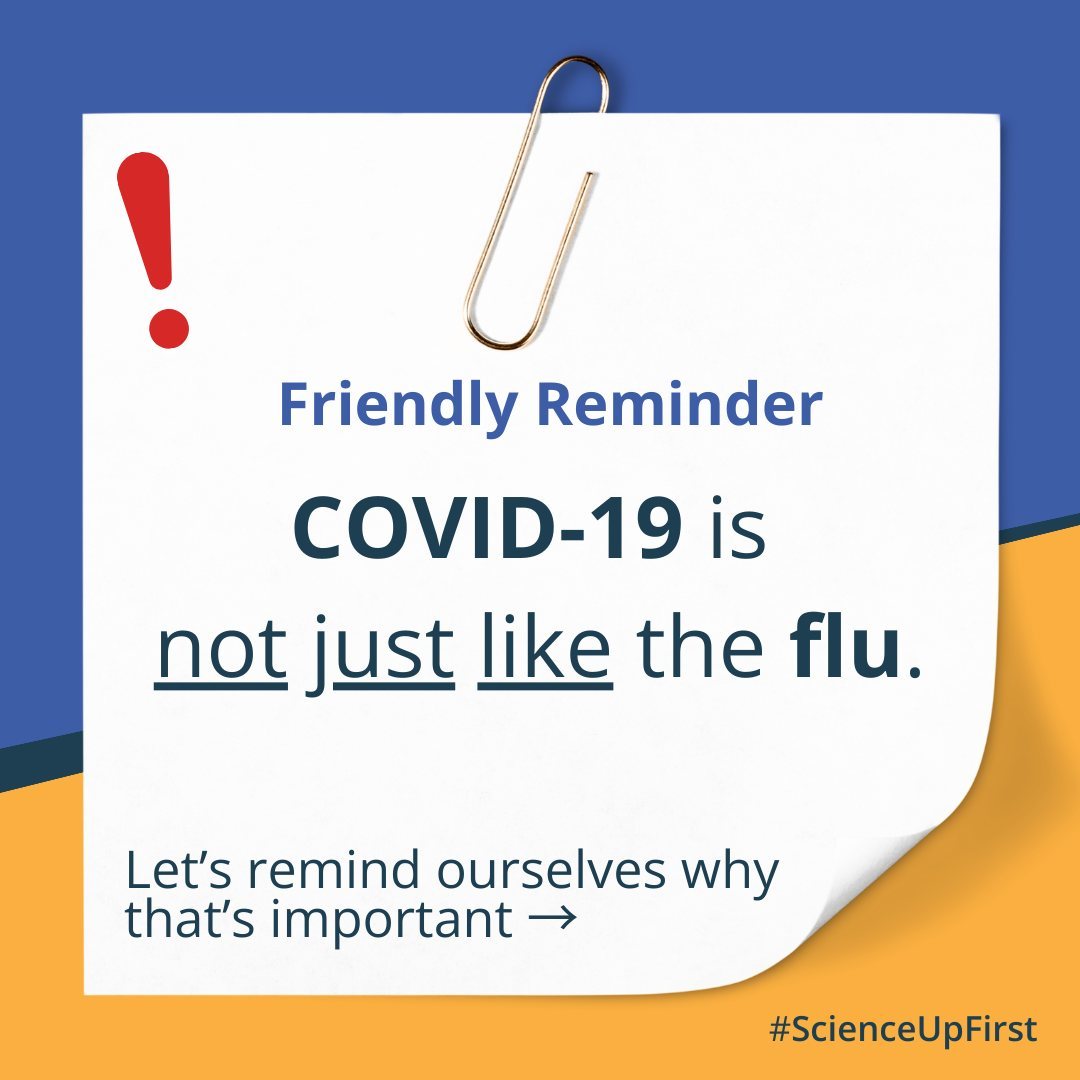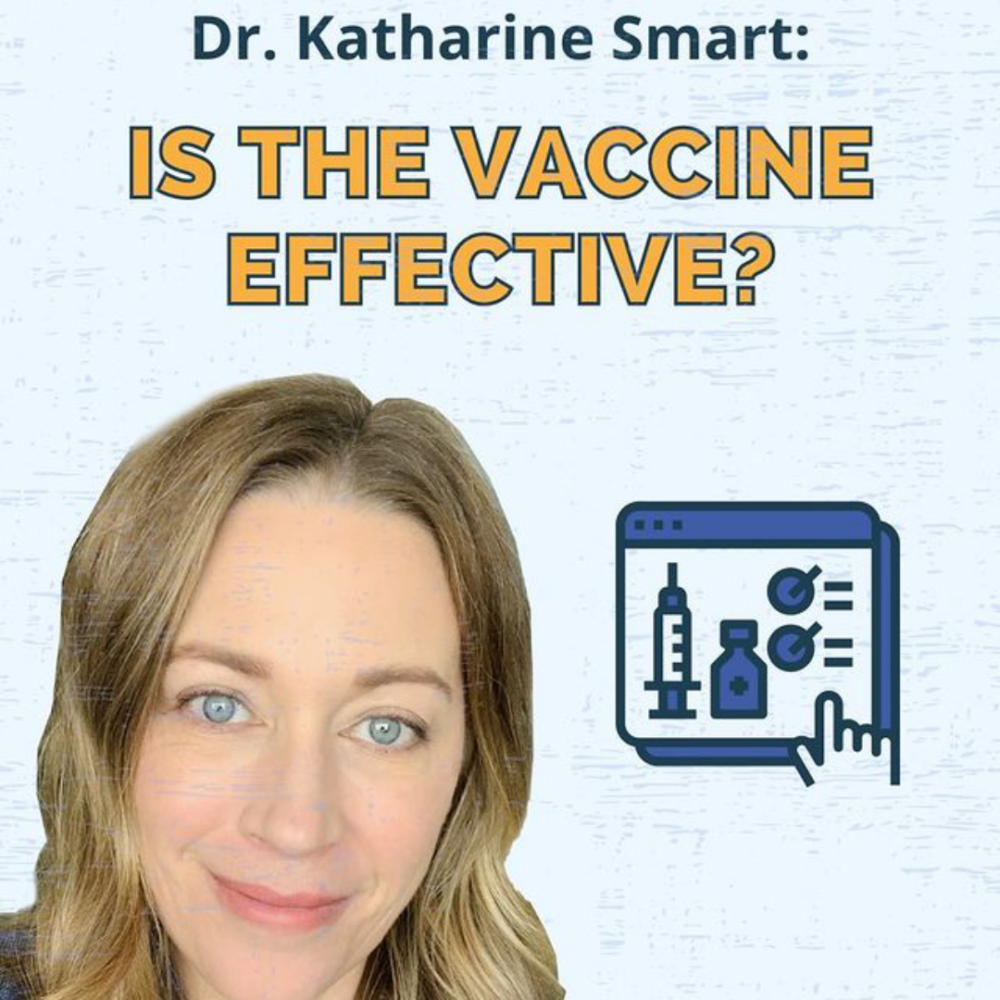





COVID-19 and the seasonal flu are both viral diseases and while they might have similar symptoms and transmission modes, it doesn’t mean they are equivalent.
These viruses differ greatly on many levels such as their capacity to cause severe disease, death and to change over time (mutations).
Right now, the seasonal flu is still at lower levels of transmission across Canada – peak seasonal activity is from November/December through February/March (29,30,31). If you are experiencing COVID-19/flu-like symptoms, such as fever and cough you should take precautions and seek testing if needed – there is a good chance it’s not an early case of the flu (13).
Share our original Tweet!
COVID-19 and the seasonal flu are both viral diseases and while they might have similar symptoms and transmission modes, it doesn’t mean they are equivalent.#ScienceUpFirst
[1/2] pic.twitter.com/FgCRkXYypz
— ScienceUpFirst | LaScienced’Abord (@ScienceUpFirst) September 18, 2023
View our original Instagram Post!
View this post on Instagram
- Similarities and Differences between Flu and COVID-19
- COVID-19 vs. the Flu
- COVID-19 vs. flu: Similarities and differences
- Seasonal Flu vs. Pandemic Flu
- Do other viruses have as many variants as SARS-CoV-2?
- COVID-19 vs. Flu
- The evolution of SARS-CoV-2
- The Flu-ification of COVID Policy Is Almost Complete
- Seasonal trends in COVID-19 cases, hospitalizations, and mortality in the United States and Europe
- Seasonality of SARS-CoV-2: Will COVID-19 go away on its own in warmer weather?
- Molecular evolutionary characteristics of SARS-CoV-2 emerging in the United States
- How Do Viruses Mutate and What it Means for a Vaccine?
- No, you don’t have the flu already. It’s probably COVID.
- COVID is Worse Than the Flu. Much Worse
- Risk of Death in Patients Hospitalized for COVID-19 vs Seasonal Influenza in Fall-Winter 2022-2023
- Comparative evaluation of clinical manifestations and risk of death in patients admitted to hospital with covid-19 and seasonal influenza: cohort study
- Hospital Outcomes of Community-Acquired SARS-CoV-2 Omicron Variant Infection Compared With Influenza Infection in Switzerland | Infectious Diseases
- Flu (influenza): Prevention and risks | FR : Grippe (influenza) : Prévention et risques
- COVID-19 epidemiology update: Current situation | FR : Mise à jour sur l’épidémiologie de la COVID-19
- Long COVID or Post-COVID Conditions
- Development of a Definition of Postacute Sequelae of SARS-CoV-2 Infection | Neurology
- Recovery and symptom trajectories up to two years after SARS-CoV-2 infection: population based, longitudinal cohort study
- COVID-19 variants of concern
- About Variants | FR : À propos des variants
- COVID-19 epidemiology update: Summary | FR : Mise à jour sur l’épidémiologie de la COVID-19 : Résumé
- No, COVID-19 Is Not the Flu | Johns Hopkins
- Early signs suggest fall COVID-19 wave starting in Canada — before updated boosters are available
- Canada ‘likely at the start’ of new COVID-19 wave. How big will it get?
- Influenza (“Flu”) Season
- FluWatch report: July 23 to August 26, 2023 (weeks 30-34) | FR : Surveillance de l’influenza : Du 23 juillet 2023 au 26 août 2023 (semaines de déclaration 30-34)
- Influenza Activity Levels Across Canada | FR : Niveaux d’activité grippale au Canada




